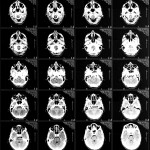
In her debut blog, Sally Turner considers a recent study on cannabis use and clinical outcomes in people with first-episode schizophrenia spectrum disorders over 24 months of treatment.
[read the full story...]
In her debut blog, Sally Turner considers a recent study on cannabis use and clinical outcomes in people with first-episode schizophrenia spectrum disorders over 24 months of treatment.
[read the full story...]
In their debut blog, Wezi Mhango & Darya Gaysina explore psychoeducation as an active ingredient that might help young people who are affected by perinatal anxiety or depression.
[read the full story...]
Dona Matthews summarises a comprehensive global meta-analysis that presents our best current knowledge on the age of onset of various mental disorders. This review has major implications for our mental health promotion and prevention efforts.
[read the full story...]
In his debut blog, Franco De Crescenzo summarises a narrative review that finds good evidence for the short-term pharmacological treatment of ADHD.
[read the full story...]
In their debut Mental Elf blog, Martin Knapp and Gloria Wong summarise a systematic review of cost-of-illness studies, which explores the distribution of the costs between different mental health and neurodevelopmental conditions.
[read the full story...]
Ian Hamilton looks at a Swedish 42-year follow-up study, which looks at the impact that psychiatric comorbidity can have on premature death in a cohort of patients with substance use disorders.
[read the full story...]
The use of illicit drugs or alcohol(substance using) is a most common precipitator of facial injuries among socioeconomically disadvantaged populations. Reducing these risky behaviours could improve outcomes and reduce potential for reinjury. The aim of this study was to assess whether a culturally competent, personalized motivational intervention incorporated into surgical care could significantly reduce existing [read the full story…]